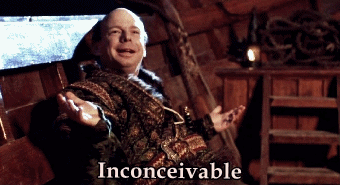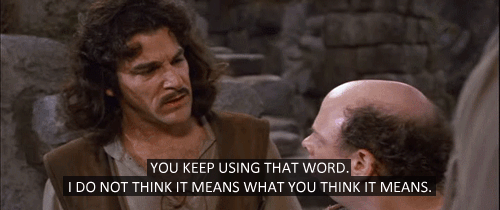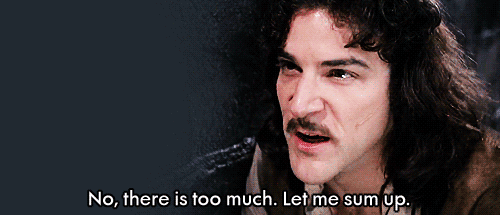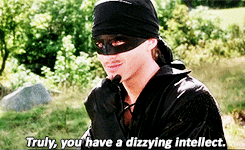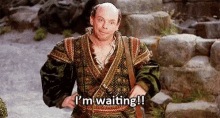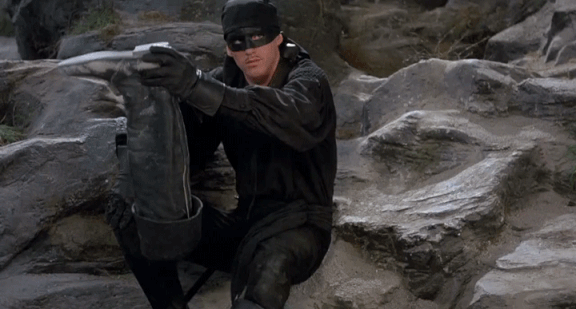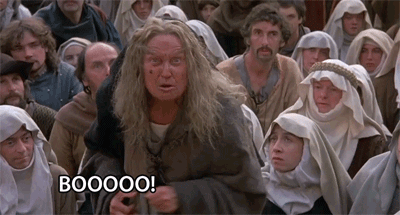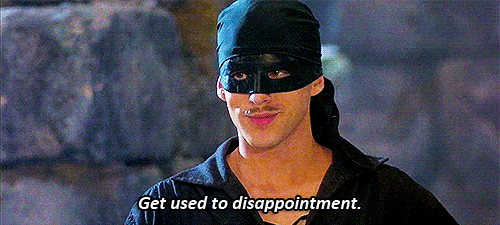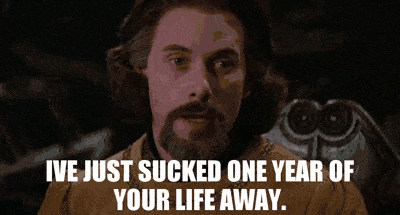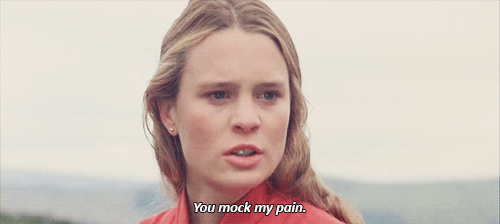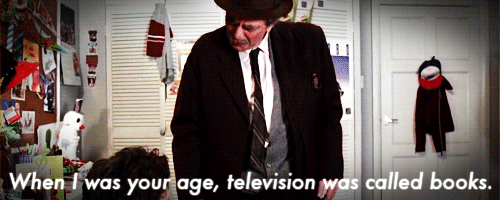As someone who has always loved writing and has an eye for errors, I became the designated proof reader of my friend group. Now I know that not everyone wants to be a writer or even is confident in their literary talent, but there are just some things that make me shake my head and laugh.
Below are 15 things that anyone who has proofread someone else's work has probably thought to themselves while editing, as told by The Princess Bride!
1. "Do you know what punctuation is?"
Many people love their run-on sentences and are afraid to use semicolons. It is amazing what a little bit of punctuation and grammar can do for a piece!
2. " (Insert Word) is not a real word, is it?"
Sometimes while proofreading a piece, your brain decides that the most ordinary words look wrong and you start to second guess yourself.
3. "Why did the font size just change?"
Definitive evidence that you didn't read it yourself, but hey, we'll just roll with it.
4. "That paragraph was only one sentence..."
Seriously, how does anyone do this? How do you write so many words without pausing to think, "I should probably stop somewhere in here"? When a run-on sentence has become a whole block of text, you know you're in trouble.
5. "Do you even know what that word means?"
Vocabulary is such a tricky topic. Some people want to sound smart, looking up big words to embellish their piece. Others, well, they are simply the victims of a misunderstanding that may extend well beyond their own sphere. Either way, what's the point of using an inappropriate word that will misconstrue your message?
6. "Is ANY of this your own work?"
If you aren't going to introduce something new, then what's the point? Very rarely will anyone ask you to write a report that just summarizes everything that's already out there on the subject. Unless you're in law school writing case briefs, remember to have some personal analysis!
7. "Is ALL of this just you rambling?"
I think we all have that one person in our life who thinks a little too highly of themselves. If I don't know you that well and your writing doesn't site anyone else's opinions or findings, chance are I'm going to ignore a good portion of your argument.
8. "Wait, what was your point again?"
Let's be honest. If you overload me with a ton of information, whether sourced or from your own opinions, I'm going to be lost if you don't have some sort of "thesis". No one likes going for a ride in the dark; they're too busy wondering if/when it's all going to come crashing down.
9. "Do you really mean that?"
10. "PASSIVE VOICE!"
Nothing makes a paper more boring than copious amounts of passive voice. Stand up and take action! Life is more exciting than your "could", "should", and "would"'s.11. "Why. isn't. this. formatted. correctly!?"
If the formatting isn't right, chances are little else is correct. There are times you get lucky and it's only a few small formatting errors; but man, when it's a train wreck, it's a train wreck.
12. "I didn't realize it was okay to repeat the same word four times in the same sentence!"
13. "How many more pages do I have to read?
(And yes, it bothers me that the above gif doesn't have an apostrophe!)
14. "You made up this citations, didn't you?"
I think at this point we all know better than to plagiarize, but if you really think you can get made up citations past a teacher or a boss, think again. I mean seriously, there's no way that Wikipedia or any other single source had this much information working in your favor. You're either ignoring a side of the argument, or you are skewing the facts to fit your premise.
Oh, and just by the way, it's super sassy to put in Google.com instead of a link to the real source...
15. "Did you even read this after you wrote it?"
Admittedly, we all spend more time in front of a screen than with good ole paper and ink; that, however, is not a strong enough excuse to not read your work before handing it off for someone else to fix. As you can see in above points, it shows when you don't read it yourself! Your work will only get better as you spend time working with it!







